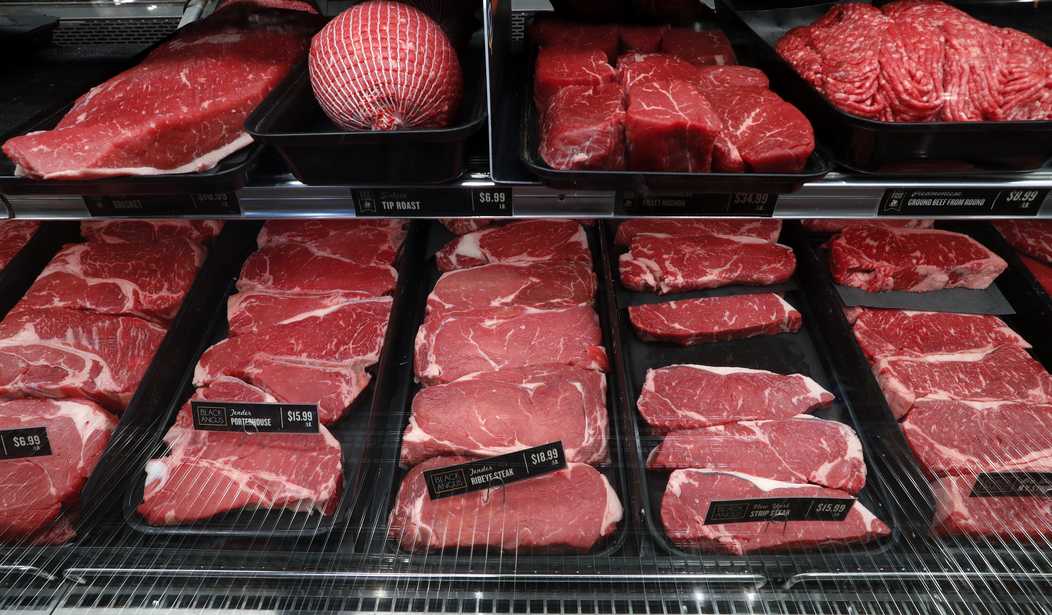There's an old joke that goes, "How can you tell if there's a vegan at your party?" The answer: "They'll tell you."
The entire issue of health factors and ethical matters around diet has been battered endlessly. "Ethical vegans," the most strident of the lot — and the most fact-challenged — make all kinds of outrageous claims about animals, their nature, the biology of humans, and how a "vegan" diet somehow causes "less harm" to animals than a diet that includes meat — a claim that they cannot back up.
That's the extreme end of the spectrum, though. There are plenty of people who forgo meat for reasons of their own without being self-righteous about it, and that's fine; live and let live. But there are matters of science involved, especially where pregnant women are concerned. We've known for some time now that excessive alcohol use by pregnant women can damage a developing fetus; this is what Fetal Alcohol Syndrome is. However, a recent study indicates that forgoing animal protein in the diet may be more damaging than moderate alcohol use.
Realistically, while any cell mutation can happen any time, you are unlikely to get cancer caused by an occasional drink, but US culture always has pregnant women and new mothers on blast, so they are told to abstain from alcohol, coffee, too many foods to count, etc.
What we should really be cautioning pregnant women about is vegetarian diets. While some epidemiological data on alcohol can be critiqued on merit, people who believe claims about PFAS in water, GMOs, pasteurized milk, vaccinated chickens, Scotchguard, or cancer-causing spatulas absolutely cannot deny the risks of a vegetarian diet. This is far more rigorous than any of the epidemiology in those claims.
The legendary John Stossel, 19-time Emmy Award winner for journalism, once told me I take "too damn long to get to the point" in articles, and he's right so I will be succinct and get right to the heart of the paper in Metabolism Open by Papadopoulou et al. "Strict vegetarian diets during pregnancy are associated with an increased risk of small-for-gestational-age infants and lower birth weights."
This isn't surprising to anyone who has studied biology, particularly the biology of humans. Here's why.
Humans are very well-adapted to an omnivorous diet. From our teeth through our digestive tracts, the human system can convert almost anything to food. Our teeth are generalized, not specialized. Our stomachs are not multi-chambered fermentation tanks like those of ruminants, nor do we have the short gut of obligate meat-eaters like cats. The human digestive system, essentially, is a garbage disposal. We can turn almost anything into food, save for the very roughest of vegetation.
Furthermore, the comparison to alcohol is not appropriate. Alcohol is a pure elective. Much as one may enjoy a good tipple now and then, and I like a snort at the end of the day myself, it's not essential for one's metabolism, and it's certainly not required for the healthy development of a baby. Alcohol, used in moderation, may not be harmful — but neither is it (physically) essential. The same can't be said for food. No matter what one eats, eating is required.
See Related: Schadenfreude - Real Meat Turns Out to Be Healthier Than Fake
Yet Another Tiresome Study Urging Us to Change Our Diets to Save the Planet
It's important to note that the paper cited is not original work; it's what is called a "meta-analysis," an examination of previous peer-reviewed studies. That doesn't make the study any less credible, especially given the size of the data sets that were examined; eight studies, taking in 72,284 participants.
If you understand biology and the human digestive tract, though, the study isn't necessary. This isn't new information. It's been known for literally all of the history of humankind; that women who have a well-balanced diet have healthier babies. It's possible to have a well-balanced diet without meat or fish, but it's easier with it — and when the health of a baby is involved, why would there be any question? If you're pregnant, have some salmon or some chicken wings! You'll enjoy it and your baby will appreciate it.
Now, the study referenced, while pointing out the need for adequate protein for proper fetal development, does agree that with a bit of care, that protein can come from a non-animal source.
If a woman is vegetarian, maybe supplements of B12, calcium, iron, and omega-3 fatty acids will be enough, but the differences between vegetarian and a regular human diet are so glaring when it comes to infants they should just forgo ideology for nine months. A lot of women went without coffee, Chardonnay, and sushi and they can't have been happy about it, but it wasn't about them.
And that's the point. It's possible to get that protein from supplements and so forth, but it's much easier to meet all a developing baby's needs by consuming meat or fish. And, as the author points out, it's not about the mother; it's about the baby.
You can read the original study here.














